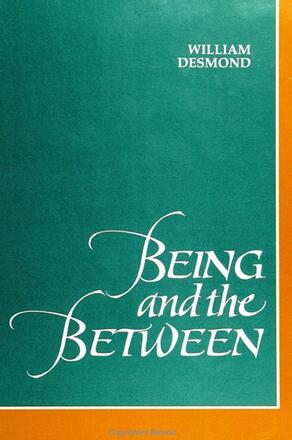
Being and the Between
Alternative formats available from:
This is the culmination of a systematic metaphysics written by a world-class philosopher, demonstrating the need for a renewal of metaphysics.
Description
As Plato told us long ago, the human being is neither a god nor a beast, but someone in between. Philosophy too is in between. How do we philosophize in between? W hat is the being of the between? This book answers the question in the most comprehensive terms possible. It offers an original understanding of metaphysical thinking and the fundamental senses of being, namely, the univocal, equivocal, dialectical, and metaxological senses.
Part I of Being and the Between focuses on the nature of metaphysics, the question of being, in terms of the above fourfold sense. Part II develops a metaphysics of being as between, relative to our basic perplexities, concerning origin, creation, things, intelligibilities, selves, communities, being true, being good. The book calls for a generous hermeneutical rethinking of the philosophical tradition. Major figures and positions are reinterpreted. Desmond addresses the issue, common since Hegel, endemic since Heidegger, concerning the end of metaphysics. Granting a proper understanding of the between, Desmond believes that we need a resurrection of metaphysics, where the old perplexities, ever new, stand before us again.
William Desmond is Professor of Philosophy, and Director of the International Program in Philosophy, in the Higher Institute of Philosophy, Katholieke Universiteit Leuven (Louvain), Belgium. He is the author of Art and the Absolute: A Study of Hegel's Aesthetics; Philosophy and Its Others: Ways of Being and Mind; Beyond Hegel and Dialectic: Speculation, Cult, and Comedy (all published by SUNY Press); and Desire, Dialectic and Otherness. He is the editor of Hegel and His Critics, also published by SUNY Press. He is a past President of the Hegel Society of America and is currently President of the Metaphysical Society of America. He is general editor of the SUNY series in Hegelian Studies.
Reviews
"What I like most about the book is that it is a fully developed, comprehensively argued, philosophical system. There are precious few of these, for reasons Desmond discusses, and here is one, all in one book. Although anticipated in Desmond's earlier books, here is the system fully expressed in Western philosophy. His erudition is exquisite, yet his expositions make this book wonderfully useful for philosophy majors who would be excited to read a philosopher interacting with the figures to which they have been introduced. " -- Robert C. Neville